Is there a comma before “which?” The word “which” is a common relative pronoun and interrogative pronoun, but when do you place a comma before this word? What are the rules?
If you want the answer in order to improve your writing, continue reading this article…
Commas before the word “which”: introducing a nonrestrictive clause
The correct circumstance to place a comma before “which” is when the word introduces nonrestrictive clauses.
Here are a few examples of placing a comma before “which” in non-restrictive phrases:
- “Amy’s new truck, which is less than a year old, already broke down.”
- “Jason’s notebook, which is bright blue, is covered in illustrations of cartoon characters.”
In the above examples, there is extra non-essential information included to add more detail to the sentences.
That said, the age of Amy’s truck and the color of Jason’s notebook isn’t required for the phrases to make sense.
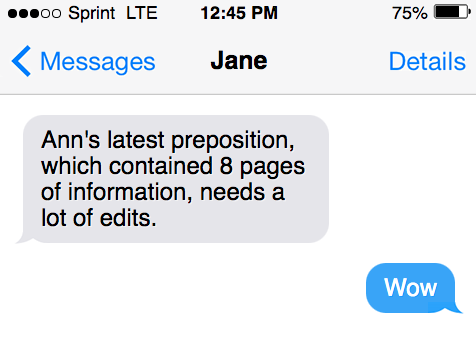
So one must place a comma before “which” and another at the end of the non-restrictive clause.
If you’re unsure whether or not you have a non-restrictive phrase in your writing, try taking it out of the sentence.
Using one of the previous sentences:
- “Amy’s new truck already broke down.”
As you can see, the sentence stays logical; there is simply less detail.
What are non-restrictive clauses?
A nonrestrictive phrase, or non-defining clause, includes additional information to a sentence.
The information isn’t absolutely necessary, but it improves and adds value to a sentence’s meaning.
Further, non-defining clauses are typically proper nouns or common nouns that refer to a specific person, event, or thing.
Therefore, a nonrestrictive clause, or non-defining clause, uses commas to indicate that the information is extra.
The commas, in this case, act like parentheses within the sentence.
For instance, this sentence introduces a nonrestrictive clause:
- “He took extra time to thank his mother, Lisa Smith, for all her support throughout the project.”
In this case, “Lisa Smith” is non-essential information.
However, this non-essential clause adds more information to the phrase (the subject’s mother’s name).
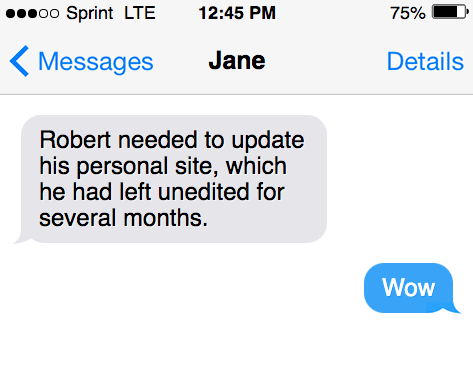
When to not use a comma the word “which”: introducing an indirect question
You do not need a comma before which when the sentence introduces an indirect question.
For instance, “I asked Sam, which car we should take to the concert” is incorrect.
Instead, it should be written as “I asked Sam which car we should take to the concert.”
Using an Oxford comma in the first example doesn’t necessarily change the meaning of the sentence, but it is grammatically incorrect and makes it difficult to read.
What is an indirect question?
Indirect questions are questions that are detailed in writing or speech rather than the precise words of the initial question.
For instance, “Stacy asked her mom what was wrong” is an indirect question.
On the other hand, a direct question is a question that can be answered.
Essentially, direct questions are not statements and always end in a question mark.
For instance, “Have you seen the latest Fast and Furious movie?” is a direct question.
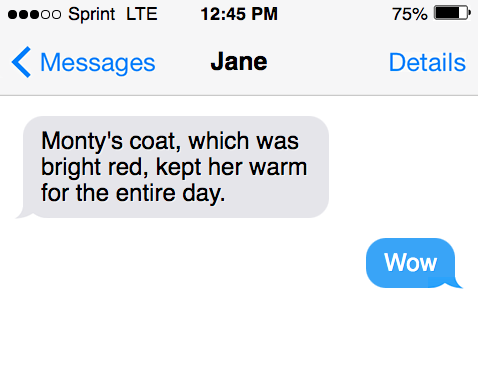
When to not use a comma before which: prepositional phrase
You do not need to put a comma before “which” when it is part of a prepositional clause, like “of which,” “in which,” or “on which.”
For instance, this is an incorrect example of comma placement:
“We listened to four songs, the longest of, which played for six minutes.”
Instead, the commas should be placed like this:
“We listened to four songs, the longest of which played for six minutes.”
The previous statement doesn’t require commas because it is part of a prepositional phrase.
What are prepositional phrases?
Prepositional phrases are a group of words that contain a preposition, its object, and any other terms that modify the object.
Most often, a prepositional phrase will alter a verb or noun.
Therefore, a prepositional phrase can be called an adverbial or adjectival phrase.
Some of the most popular prepositions that start a prepositional phrase include “to,” “of,” “about,” “by,” “during,” “for,” “from,” “in,” and “with,” among others.
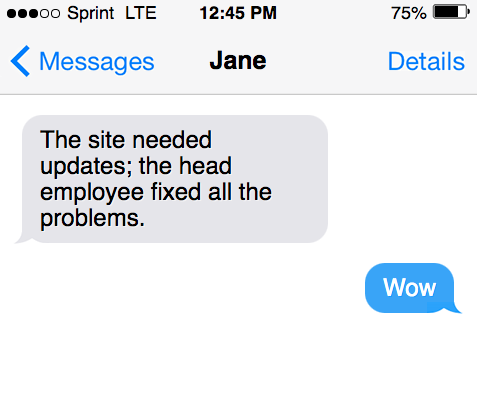
When to not use a comma before the word “which”: restrictive or defining clause
In a sentence containing a restrictive clause, it is best to use “that” instead of “which.”
However, it isn’t a rule that all statements containing a restrictive or defining item demand the word “that” instead of “which.”
One context containing a defining clause is the following statement:
- “The person in the store who has brown hair committed the crime.”
The subject, “person,” is restricted in to ways.
You know that this person is both in the store and has brown hair.
Therefore, you know that the other people not in the store couldn’t have committed the crime.
As you can see, you do not need a comma for this sentence to meet proper American English rules.
What is a restrictive and defining clause?
A restrictive or defining clause modifies the noun that comes before it in an essential way.
Essentially, restrictive clauses or defining clauses can’t be removed from a phrase without changing its meaning.
In comparison, a non-restrictive clause describes a noun with extra information that isn’t required for the statement to make sense.
In this statement, “The student who first walked into the classroom was Karen Jackson,” “who first walked into the classroom” is the restrictive clause.
If you take out the restrictive clause, the statement reads, “The student was Karen Jackson.”
As you can see, the grammar is correct, but the sentence’s meaning changes drastically.
Restrictive clauses can be tricky to identify at first, so take your time to consider whether comma usage is necessary.
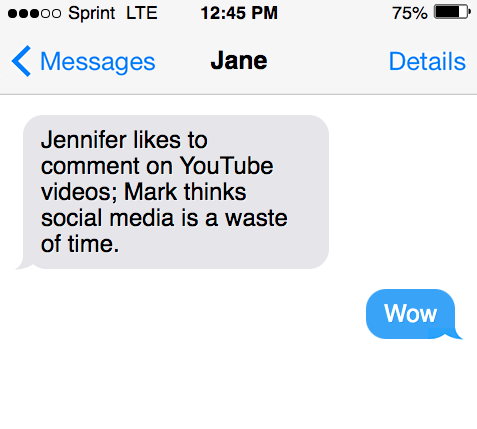
When to use commas
You should never use a comma to separate a subject from its verb.
Additionally, you shouldn’t use a comma to separate two nouns that appear as a compound subject or object.
For instance, in the following sentence, it would be wrong to place a comma between the two nouns “Mark” and “his dog.”
“Mark and his dog will be taking a walk at the park later.”
Do you put a comma before the word “which?”
Yes, in some circumstances, you place a comma before the word “which.”
When introducing a non-restrictive clause, you use the punctuation mark.
However, restrictive clauses in writing do not need a comma before the word “which.”
You also don’t use a comma when the comment is introducing a dependent clause.
A comma is also not essential when “which” is used in a question that is not direct.
Do you put a semicolon before the word “which?”
You should never use a semicolon before “which.”
No matter what the rest of the sentence contains, restrictive clauses, a direct object, nonessential information, etc., semicolons should not be used before “which.”
When to use a semicolon
Semicolons are used to join two independent clauses.
When someone uses a comma to join two independent clauses, the mistake is called a comma splice.
For instance, this sentence is incorrect:
“We were low on eggs, I went to the store.”
Instead, the answer to fixing this is the following:
“We were low on eggs; I went to the store.”
Examples of using a comma before the word “which”
- “Ann’s latest preposition, which contained 8 pages of information, needs a lot of edits.”
- “Robert needed to update his personal site, which he had left unedited for several months.”
- “Monty’s coat, which was bright red, kept her warm for the entire day.”
Examples of using a semicolon
Here are a few more examples of correctly using semicolons:
- “The site needed updates; the head employee fixed all the problems.”
- “Jennifer likes to comment on YouTube videos; Mark thinks social media is a waste of time.”
Examples of using “which” in a question
- “Which style of writing do you like best?”
- “Which article did you choose to do a report on?”
- “Which way should we go?”
How to remember when to use a comma before the word “which”
A simple rule or quick answer to knowing when to put a comma before which is to thoroughly read a sentence and pause when you use a comma.
If the statement’s meaning changes or makes it challenging to read the rest of the sentence after you introduce a comma, you need to double-check grammar rules.
Sources
- Grammar: Relative, Restrictive, and Nonrestrictive clauses – Walden University
- When to Use a Comma Before Which – Grammarly
- What Is a Prepositional Phrase? – Grammarly
- Meaning of indirect question in English – Cambridge Dictionary
- Restrictive and Nonrestrictive Clauses – What’s the Difference?
- Clauses – Restrictive Clauses and Nonrestictive – Kent Law
- Comma Before “Which” – When and How – Pro Writing Aid
- Rules for Using Commas – Grammarly
- Proper noun – Wikipedia
- Do You Know What an Indirect Question Is?
- Prepositional Phrases in English Grammar – ThoughtCo
Inside this article
Fact checked:
Content is rigorously reviewed by a team of qualified and experienced fact checkers. Fact checkers review articles for factual accuracy, relevance, and timeliness. Learn more.
Core lessons
Glossary
- Abstract Noun
- Accusative Case
- Anecdote
- Antonym
- Active Sentence
- Adverb
- Adjective
- Allegory
- Alliteration
- Adjective Clause
- Adjective Phrase
- Ampersand
- Anastrophe
- Adverbial Clause
- Appositive Phrase
- Clause
- Compound Adjective
- Complex Sentence
- Compound Words
- Compound Predicate
- Common Noun
- Comparative Adjective
- Comparative and Superlative
- Compound Noun
- Compound Subject
- Compound Sentence
- Copular Verb
- Collective Noun
- Colloquialism
- Conciseness
- Consonance
- Conditional
- Concrete Noun
- Conjunction
- Conjugation
- Conditional Sentence
- Comma Splice
- Correlative Conjunction
- Coordinating Conjunction
- Coordinate Adjective
- Cumulative Adjective
- Dative Case
- Determiner
- Declarative Sentence
- Declarative Statement
- Direct Object Pronoun
- Direct Object
- Diction
- Diphthong
- Dangling Modifier
- Demonstrative Pronoun
- Demonstrative Adjective
- Direct Characterization
- Definite Article
- Doublespeak
- False Dilemma Fallacy
- Future Perfect Progressive
- Future Simple
- Future Perfect Continuous
- Future Perfect
- First Conditional
- Irregular Adjective
- Irregular Verb
- Imperative Sentence
- Indefinite Article
- Intransitive Verb
- Introductory Phrase
- Indefinite Pronoun
- Indirect Characterization
- Interrogative Sentence
- Intensive Pronoun
- Inanimate Object
- Indefinite Tense
- Infinitive Phrase
- Interjection
- Intensifier
- Infinitive
- Indicative Mood
- Participle
- Parallelism
- Prepositional Phrase
- Past Simple Tense
- Past Continuous Tense
- Past Perfect Tense
- Past Progressive Tense
- Present Simple Tense
- Present Perfect Tense
- Personal Pronoun
- Personification
- Persuasive Writing
- Parallel Structure
- Phrasal Verb
- Predicate Adjective
- Predicate Nominative
- Phonetic Language
- Plural Noun
- Punctuation
- Punctuation Marks
- Preposition
- Preposition of Place
- Parts of Speech
- Possessive Adjective
- Possessive Determiner
- Possessive Case
- Possessive Noun
- Proper Adjective
- Proper Noun
- Present Participle
- Prefix
- Predicate



